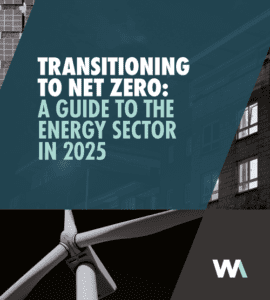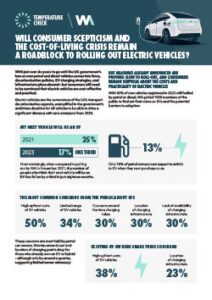With energy and climate being one of the policy areas where the new Government have built most momentum, the sector is getting to grips with what’s likely to come next and how this will be sustained over the course of the Parliament. Net zero was a significant focus at both the Labour and Conservative Party conferences, although with vast differences in how it was approached.
What has the last fortnight taught us over how both parties are approaching energy and decarbonisation, and what emerging trends became clear at fringes, in the keynote speeches and in side discussions between industry? Here are our reflections on what we learnt.
- There’s a tension emerging between delivery against generation targets and using this investment to drive wider social change
The energy sector has a critical role to play in at least two of the Government’s Missions: Clean Power by 2030 and Economic Growth (and arguably also the Opportunity Mission considering the critical importance of skills). The fastest, lowest cost and most efficient delivery of projects is essential to ensure success against these agendas. However, it’s also not a secret that Labour governments are keen to deliver social change. The phrase “inclusive growth” was used repeatedly by Cabinet Ministers in Liverpool.
But can you deliver projects as quickly as possible while also maximising their social impact? While Ministers are clear that they are prioritising project delivery, important voices within the wider Labour movement are calling for policy changes that will ensure the UK’s energy system is more actively used as a vehicle for delivering social reforms.
Nature groups are campaigning for an amendment to the Great British Energy Bill which would give the new body an “environmental duty”, with a requirement to consider the impact on biodiversity. Trade union representatives used contributions at fringe events in Liverpool to advocate for public subsidy and financial support – through the Contracts for Difference (CfD) mechanism, the British Jobs Bonus and the National Wealth Fund – to be conditional on developer commitments around UK content and supply chain support, and trade union recognition for their workforces.
While these proposals are not government policy, they demonstrate the different pressures that Ministers are facing and that business need to be attuned to.
- Technologies that will have a role to play after 2030 need to be making the case now for attention
The 2030 Clean Power Plan that Energy Secretary Ed Miliband and the head of Clean Power Mission Control Chris Stark have tasked the newly established National Energy System Operator (NESO) with creating this Autumn will create a clear pathway for projects and technologies that will be essential to meeting this target. There’s likely to be a much smoother delivery pathway for these projects – with the prospect of preferential access to grid connections for example.
However, there’s a clear risk for those technologies that aren’t identified as fitting into this category, but that are likely to have a medium to long-term role including to meet 2050 targets. Nuclear and likely some carbon capture and hydrogen projects are most impacted.
It’s not to say there is no political support for these projects or technologies, however a tunnel-vision focus on 2030 creates a risk of more limited political attention for these solutions and the policy steps required to help them progress being deprioritised.
Industry have a narrow window to make a very clear case to government and NESO now on the 2030 contribution that these projects and technologies can make, and to articulate the risks for future viability – which will still be needed to hit future targets – if progress slows and key decision points are deferred.
- Market reform is reappearing on the policy agenda
Reforming how the electricity market works is divisive within industry. The review of electricity market arrangements (REMA) process has occupied significant political, policy, regulatory and industry time and attention to date, with little tangible progress.
However, in the fringe discussions in Liverpool and Birmingham, the debate was reopened. Advocates for a more locational approach to electricity market pricing argue that it will reduce bills. The case against is essentially that the benefits are overstated, and it will create significant market disruption.
There won’t be quick solutions to this one but expect the discussion to intensify over the next six months or so.
- Heat decarbonisation is the next big issue on the policy agenda
It’s not a surprise that the Government has sought to deliver as many ‘quick wins’ as possible in the first 100 days, with a particular policy focus on renewables. Limited bandwidth means political attention has been directed towards this part of the energy market.
But with many tough challenges to address across the energy market, this focus will need to widen throughout the Autumn and beyond. It was clear from talking to politicians and industry at both Party Conferences that heat decarbonisation is likely to become a key focus over the next 6-12 months. Often neglected and seen as too difficult to solve, how to decarbonise heat and buildings can’t easily be ignored for much longer.
With key decisions over future technologies expected to be taken in 2026, impatience from industry for the introduction of the Future Home Standard and questions over exactly what Labour’s Warm Homes Plan looks like, this is a theme that will occupy much more policy, political and media time in the months to come. It’s also a space where the government’s thinking is less mature, creating significant opportunities for constructive solutions – both at a policy and delivery level.
- The future direction of Conservative energy policy is starting to emerge
The outcome of the Conservative leadership election at the start of November will clearly shape how the Party scrutinises Labour’s energy policy over the course of this Parliament. However, a number of themes are already becoming clear. At the heart of it is likely to be a focus on supporting new nuclear – a combination of GW scale and newer technologies like SMRs, AMRs and fusion. The support for nuclear from Conservative Party politicians at panel discussions in Birmingham was fulsome, and centre-right thinkers are pushing the technology heavily. Conservative Party politicians believe that Labour’s support for the technology is relatively shallow, offering them a chance to highlight policy gaps.
Beyond this, expect continued scrutiny of the impact and value of GB Energy, continued support for North Sea oil and gas, and an argument that the 2030 Clean Power target is creating unintended consequences – increasing the whole system costs of renewables and leading to a lack of focus on medium to long-term technologies. The challenge in the long run will be how to build a distinctly Conservative policy platform while engaging constructively with a government agenda which they instinctively perceive as overly centralised and planned.



